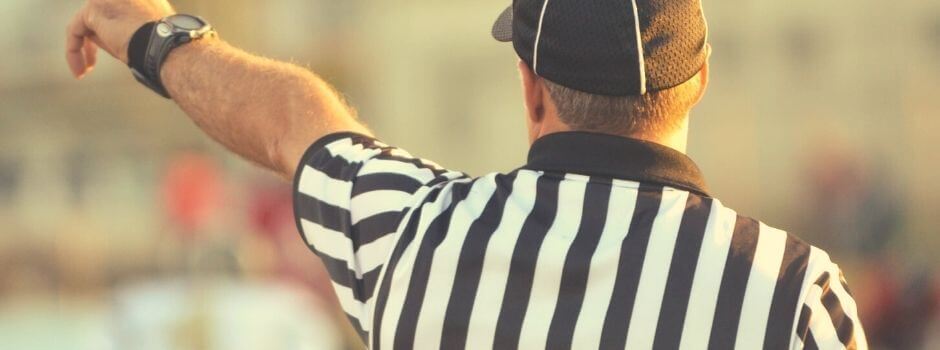Legal overview
A May 2018 ruling by the U.S. Supreme Court that declared the Professional and Amateur Sports Protection Act (PASPA) unlawful made sports betting legal in New Jersey.
PASPA had precluded New Jersey and most other states from allowing and regulating sports betting before the Supreme Court’s ruling.
In June 2018, State Governor Phil Murphy signed Assembly Bill 4111 into New Jersey State Law, and within days the first retail sports sites and legal NJ sportsbooks went up.
Recent shifts in the public’s sentiment around sports betting have led to important legal changes.
Online Sports betting is now legal in several US states due to a 2018 landmark US Supreme Court decision that cleared the way for each state to determine their respective gaming laws.
For many years, only the state of Nevada allowed sports betting. Today, the State of New Jersey is leading the way towards the implementation of a convenient framework to place wagers on sporting events.

The key aspects of the law are the legality and mobile convenience provisions. Here are some key definitions of the New Jersey law and what they mean to sports bettors everywhere, since many states are following this framework.
If you want to check out our NFL Betting Guide Page, please click on the link. We also provide NFL Betting Picks for free!
Other Important Legal Notes
The law defines an “online sports pool”. This allows wagers on sports events can be made via interactive devices, such as a computer or hand-held mobile devices.
It means betting on sports events is legal and convenient when you use an online betting site.
A sports event is defined as any professional athletic event, any Olympic or as any international sports competition. A sporting event also includes most college athletic events.
However, you are not allowed to wager on “prohibited sports events“. This means you can bet on most sporting events when in New Jersey.
“A “prohibited sports event” is an event in which a New Jersey college team participates regardless of where the event takes place.
This means no bets are allowed in New Jersey sportsbooks on Rutgers football or Seton Hall basketball as examples, but you can bet on professional teams, like the New Jersey Devils.

Legal wagers must be placed while geographically located in the state of New Jersey. It is the responsibility of the operators to adhere to this in-state requirement.
This means a bettor’s cell phone must have the GPS location to indicate that it is within state limits in order to legally place a bet.
There are groups of individuals that are prohibited from betting on any sporting event due to their involvement with specific sports or leagues.
This would include professional and college athletes, coaches, and referees. The law prohibits any persons with potential influence or access to non-public information form betting on events they are in some way associated.
Any person under the age of 21 is prohibited from betting.
0ne other legal aspect that is very important to sports bettors in the New Jersey law is the provision that establishes reserve regulations that the sportsbooks must adhere to.
This provision governs the level of cash reserves needed to cover winning wagers. As a bettor, it is important to know that your payment is fiscally guaranteed.
Nevada and New Jersey are states with full implementation. If your state allows sports betting, you can expect to see similar legal provisions.
The History Behind Legal Sports Betting in NJ
In the beginning, PASPA banned sports betting. President Bush signed a law back in 1992, banning states from regulating or taxing sports betting.
This new legislation was known as the Professional and Amateur Sports Protection Act (PASPA).
Sports betting itself was already outlawed, prior to this new legislation, however, once the law took effect, states (outside of a few exceptions) were no longer allowed to regulate the activity.
This law made an exception for Nevada, Oregon, Delaware, and Montana. At the time the bill came into effect, sports betting was already a huge commodity in Nevada.
The other three states – Oregon, Delaware, and Montana – allowed regulated sports betting in certain places. Although this law was enforced country-wide, reports still continually proved that billions were being gambled yearly in US sports betting.
After regulated sports betting had been restricted for 25 years, New Jersey finally won its battle and the U.S. Supreme Court declared PASPA unconstitutional, giving sports betting law a green light.
The 6-3 decision took down PASPA and states gained the right to establish regulated online gambling and sports betting within their own borders.
Since the regulation of sports betting has been made legal within New Jersey state borders, the Garden State has seen record growth.
Although they haven’t yet caught up to Nevada, New Jersey’s monthly handle almost doubled from August to September.
$96 million quickly turned into $184 million, however, it still came in behind Nevada’s whopping $571 million throughout the month.
Sports Betting Player Safety
NJ online sports betting sites, as well as land-based sportsbooks and casinos, are all regulated by the NJ Division of Gaming Enforcement (DGE), which carries out the lengthy inspections required for these establishments to obtain their licenses.
Before acquiring this license, NJ sports betting sites undergo meticulous inspections and vigorous background checks where authorities investigate the companies along with their employees.
This practice ensures the safety of all players involved with legal online sports betting sites. Players can wager their money through protected accounts with the comfort of knowing that their money is in the hands of legitimately licensed establishments.
Safe and convenient withdrawal and deposit options are available to players on legal NJ sports betting sites.
There is no way for gambling corruption to interfere with player winnings when these legal online sports betting sites are under such strict regulations.
Safe and Convenient Banking
Banking transactions are much smoother and safer through licensed and regulated sports betting sites. A regulated sportsbook offers a number of different safe deposit methods besides depositing cash at the casino’s cage.
These methods usually include credit cards, bank wires, Neteller, PayPal, and checks. Deposits are seamless and withdrawals are quick.
The U.S. banking system does not support black-market sportsbooks, therefore, when dealing with an illegal sportsbook, a player’s money moves around to evade the law, putting it at very high risk.
On top of the safety measures when participating in legal online sports betting, a player also has the convenience of avoiding operator expenses on their withdrawals.